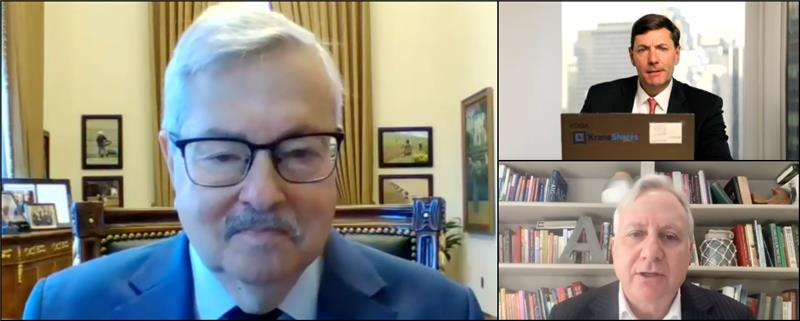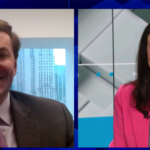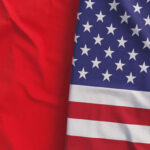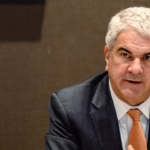
Post-Election Recap: Trump’s Man in Beijing Discusses U.S.-China Relations
Few people have the same window into the leaders of the world's two largest economies as former U.S. Ambassador to China, Terry Branstad. From the U.S. perspective, he served under President Trump during his first term, while from China's perspective, he cultivated a 30-year relationship with President Xi Jinping.
Branstad has an unmatched understanding of the priorities, approaches, and interactions that have shaped US-China diplomacy in recent years. His experience working closely with both leaders provides rare insight into the complexities of this critical relationship and its future direction.
KraneShares hosted a webinar featuring Branstad on November 14th, 2024. We have summarized the discussion below, and investors can access the replay here.
Branstad’s Unique Perspective on U.S.-China Dynamics
To understand Branstad’s views shared during the webinar, you must understand his experience working with President Trump and President Xi.
"I was the first American governor to host Xi Jinping when he was just a 31-year-old young man who was a Party Secretary in one of the counties of Hebei Province," Branstad noted. His connection to Xi Jinping dates back to 1985 when he hosted the future Chinese leader in Iowa. This long-standing relationship has earned Branstad the status of an "old friend" in Xi's eyes, a valuable asset in diplomatic circles.
The ambassador's appointment by Trump in his first term was largely due to this connection with Xi, as well as his son’s connection with Trump. "My son Eric, my oldest son, was chair of Trump's 2016 and 2020 campaigns in Iowa. He told Donald Trump that I had a great relationship with Xi Jinping, and I think that's why I was chosen as Ambassador during his first term," Branstad explained.
While campaign rhetoric often emphasized being "tough on China," Branstad believes the economic realities of the U.S.-China relationship are the opposite. “China remains a top trading partner for the United States, and many S&P 500 companies continue to derive significant revenue from the Chinese market,” Branstad explained.
Branstad believes there is strong potential for diplomatic progress between the U.S. and China under a second Trump term. Branstad emphasized that despite the rhetoric, the robust economic ties between the U.S. and China are likely to persist, albeit with potential adjustments in trade policies and strategic priorities.
Trump's Approach to China
Branstad believes Trump’s second term will look different than his first. "Trump is already off to a quick start. I think clearly, he's a lot more experienced today than he was when he came in the first time... He now has control of the party, and he is choosing people that are loyal and competent,” Branstad stated.
Branstad told attendees that his son facilitated a congratulatory message from Xi Jinping to Donald Trump following the election and helped convey a response from Trump back to Xi. This personal level of communication suggests that channels for dialogue between the two leaders remain open.
While U.S.-China relations may not be the top priority at the start, Branstad emphasized its crucial importance due to the economic significance of both nations. He noted that Trump's first focus would likely be on “domestic issues such as border control, inflation, and improving economic opportunities for American workers.” Branstad suggested his second focus would be concerning international conflicts like the ongoing wars in Ukraine and the Middle East.
Trade Policies and Tariffs
Branstad discussed Trump's approach to trade negotiations, particularly regarding tariffs. He emphasized that Trump's strategy was unprecedented in its boldness and scope. "Trump did something that no American governor, no American president had done before: he imposed tariffs on China," Branstad explained.
Branstad highlighted the goal of these tariffs: creating a more balanced trade relationship. "There's also a recognition that if you're going to reach a trade agreement, you have to have something that's going to benefit both sides," Branstad explained. This approach led to the Phase One trade agreement, which he considered a significant diplomatic achievement and a tangible result.
Branstad believes Trump views tariffs as a strategic tool for economic diplomacy. "He looks at tariffs as a mechanism to get attention and to really focus on improving the opportunities for American workers and American consumers," he noted. This perspective stems from Trump's business background, which prioritizes direct and often unconventional negotiation tactics.
The implementation was more nuanced than many realized. Branstad pointed out that while the tariffs covered approximately $300 billion worth of annual goods, "There were many exceptions that the U.S. Trade Representative, Robert Lighthizer, ultimately granted."
Looking ahead to Trump's second term, Branstad expressed cautious optimism about further trade developments. "I'm hopeful that, obviously, it was intended that there would be a Phase Two, and hopefully, in this new Administration, we will see action in that area," he said. He also praised the key negotiators who developed a close relationship and made the initial progress possible, particularly highlighting the work of Robert Lighthizer and Vice Premier Liu He, who was the top trade negotiator with the United States.
Branstad's perspective on Trump’s trade tactics goes beyond simple protectionism to a more complex approach of economic leverage and strategic negotiation. As Trump enters his second term, Branstad suggests that investors and policymakers should expect a continuation of this pragmatic approach to U.S.-China trade relations.
The Role of Trump’s Administration Picks, Technology Controls, and Taiwan
We believe Trump is uniquely positioned to have a “Nixon goes to China” moment, striking a grand bargain that piggybacks off his Phase One trade deal through an unconventional approach to diplomacy.
When asked about this, Branstad emphasized the importance of keeping an open mind, as Trump appears to be assembling a team that includes people like Elon Musk, who actively does business in China, and politicians like Marco Rubio, who have had tougher stances on China historically. According to Branstad, this diverse group may be part of Trump's strategy to negotiate the best possible deal for the United States.
While Branstad did not extensively discuss technology and export controls, he believes they will likely be significant factors in U.S.-China relations during Trump's second term. The ongoing competition in areas such as semiconductors, artificial intelligence, and quantum computing will likely influence policy decisions and trade negotiations.
Additionally, Taiwan and broader regional security concerns in the Indo-Pacific are likely to be crucial elements in shaping U.S.-China relations. Branstad addressed the complex issue of Taiwan, emphasizing its critical role in the semiconductor industry. He stated, "Because of Taiwan's tremendous leadership in semiconductors, that is another reason why I think there won't be a shooting war with Taiwan, because neither China nor the United States wants to see this technology destroyed." Branstad believes that both nations recognize the importance of preserving Taiwan's infrastructure due to its strategic value. Trump's stance on these matters will be closely watched by all parties in the region.
The Impact of US-China Relations on KWEB
Ambassador Branstad's insights into US-China relations during Trump's first term provide a backdrop for understanding the economic dynamics that influenced market performance, including for the KraneShares CSI China Internet ETF (Ticker: KWEB). During Trump’s first term from January 20, 2017, through January 20, 2021, KWEB returned an impressive 148.46%, reaching an all-time high price of $88.73 per share.1 This remarkable growth occurred amid a complex trade environment shaped by tariffs and strategic negotiations.
The performance data quoted represents past performance. Past performance does not guarantee future results. The investment return and principal value of an investment will fluctuate so that an investor’s shares, when redeemed or sold, may be worth more or less than the original cost. Current performance may be lower or higher than the performance quoted. For performance data current to the last month-end, please visit our website by clicking https://kraneshares.com/kweb/.
Conclusion
We were honored to host Ambassador Branstad on this webinar. We believe President Trump is strategically positioning his administration for a significant deal with China.
Since the webinar, additional administration picks have been announced, such as hedge fund manager Scott Bessent as Treasury Secretary and CEO of Cantor Fitzgerald Howard Lutnick as Commerce Secretary. These choices underscore Trump's strategy of assembling a cabinet with a global perspective, blending individuals who have successfully worked with China with those who may be tougher on China in order to secure the best outcomes for the United States.
Trump’s Administration selections are still ongoing and will directly affect the implementation of tariffs, technological competition in emerging technologies, and the possibility of a Phase Two trade agreement, which will all be key areas to watch in the coming years.
For KWEB standard performance, top 10 holdings, risks, and other fund information, please click here.
Citations:
- Data from Bloomberg as of 1/21/2021. Retrieved 11/25/2024.
















